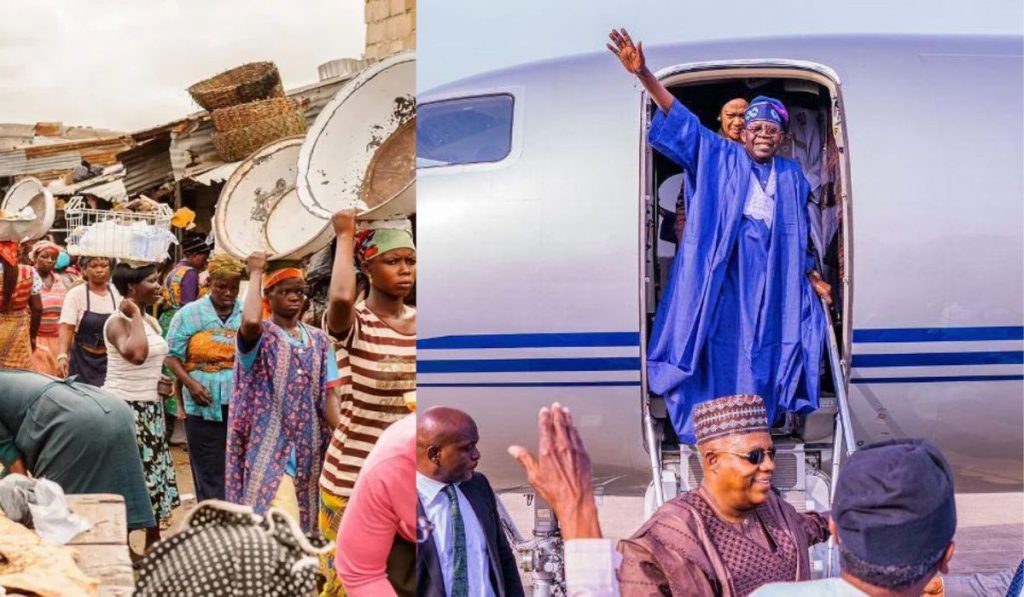
Poverty in the Midst of Plenty – A Call for Urgent Action
Nigeria, a nation abundantly blessed with vast natural resources, immense human capital, and an elite class of stupendously wealthy individuals, paradoxically holds the grim title of the poverty capital of the world. This is not just a contradiction; it is a tragedy, a blight on the conscience of leadership, and an indictment of governance at all levels. The irony is glaring, the pain is palpable, and the urgency for reform cannot be overstated.
How did we get here? How does a country that boasts of oil wealth, fertile lands, thriving industries, and a vibrant youth population remain shackled by the chains of poverty? The answer is glaring: mismanagement, corruption, and a gross failure to judiciously deploy the commonwealth of the nation for the good of its people. Wealth, which should be a tool for development and societal upliftment, has been hoarded by a privileged few while millions languish in squalor, struggling to afford basic needs like food, shelter, healthcare, and education.
The reality is heartbreaking. Across Nigeria, families go to bed hungry despite living in a land teeming with agricultural potential. Graduates roam the streets unemployed despite a labor market that should be thriving with opportunities. Hospitals are overcrowded and under-equipped, forcing many to seek medical care abroad or resign themselves to substandard treatment. Public schools are in disrepair, and the children who should be the leaders of tomorrow are left without access to quality education. This is not just a systemic failure; it is a crime against humanity.
Read also: Government of Palliatives: A Call for Sustainable Poverty Alleviation Policies in Nigeria
The sight of impoverished children scavenging for food on the streets of a country with billionaires flying private jets is nothing short of a moral abomination. The stark contrast between opulence and destitution in Nigeria is not merely an economic issue; it is a leadership crisis, an ethical failure, and a betrayal of the sacred duty of governance. The gap between the rich and the poor continues to widen, exacerbating social unrest, insecurity, and a growing sense of hopelessness among the populace.
We must demand more from those in power. It is time for government at all levels—federal, state, and local—to rise above selfish interests and commit to real, transformative change. The resources of Nigeria must no longer serve as the private estate of a privileged few but must be equitably distributed to provide every citizen with a fair chance at a dignified life. Government budgets must be transparent, free from embezzlement and misappropriation. Public officers must be held accountable for the responsibilities they have sworn to uphold.
Education must be a right, not a privilege. The government must invest heavily in public schools, equip teachers with the necessary tools, and ensure that children, irrespective of their background, have access to quality education. A nation that neglects its youth is setting itself up for failure. Healthcare must be accessible to all, not just those who can afford overseas medical trips. Nigerian hospitals must be well-equipped, adequately staffed, and capable of providing world-class medical services.
Infrastructure should serve the masses, not just the enclaves of the rich. Roads, bridges, electricity, and water supply must be prioritized to facilitate economic growth and improve the living conditions of everyday Nigerians. Job creation must be intentional, ensuring that the teeming youth population has the means to build a future within their own country, rather than fleeing to foreign lands in search of survival. Industrialization and entrepreneurship must be supported through favorable policies, grants, and access to capital.
Agriculture, one of Nigeria’s most neglected goldmines, must be revitalized. With the right investments and policies, Nigeria can become a global leader in food production, reducing dependency on food imports while creating millions of jobs. The government must support farmers with modern tools, subsidies, and incentives to increase food production and ensure food security.
We at CSR Reporters believe that beyond economic policies, social welfare programs must be implemented to cushion the effect of extreme poverty. Vulnerable groups—widows, orphans, the elderly, and people with disabilities—must receive adequate support. A robust social security system must be put in place to protect citizens from the harsh realities of economic downturns and provide them with the means to lead dignified lives.
This is not a plea; NO! To us at CSR Reporters, it is a demand. It is the sacred duty of leadership to uplift its people, to ensure that no Nigerian goes to bed hungry in a land flowing with wealth. The time for rhetoric is over. The government must act decisively, transparently, and urgently to change the narrative of a country brimming with potential yet crippled by neglect.
History will judge today’s leaders by the choices they make now. Will they continue to perpetuate a system that favors the few at the expense of the many? Or will they finally recognize that true power lies not in amassing wealth, but in creating a society where every Nigerian can thrive? The time has come for a government that serves the people, not one that exploits them.
The time is now. The urgency is dire. Nigeria cannot afford to remain the poverty capital of the world while sitting on untapped prosperity. The people are watching. The world is watching. And history will remember.
[give_form id="20698"]

